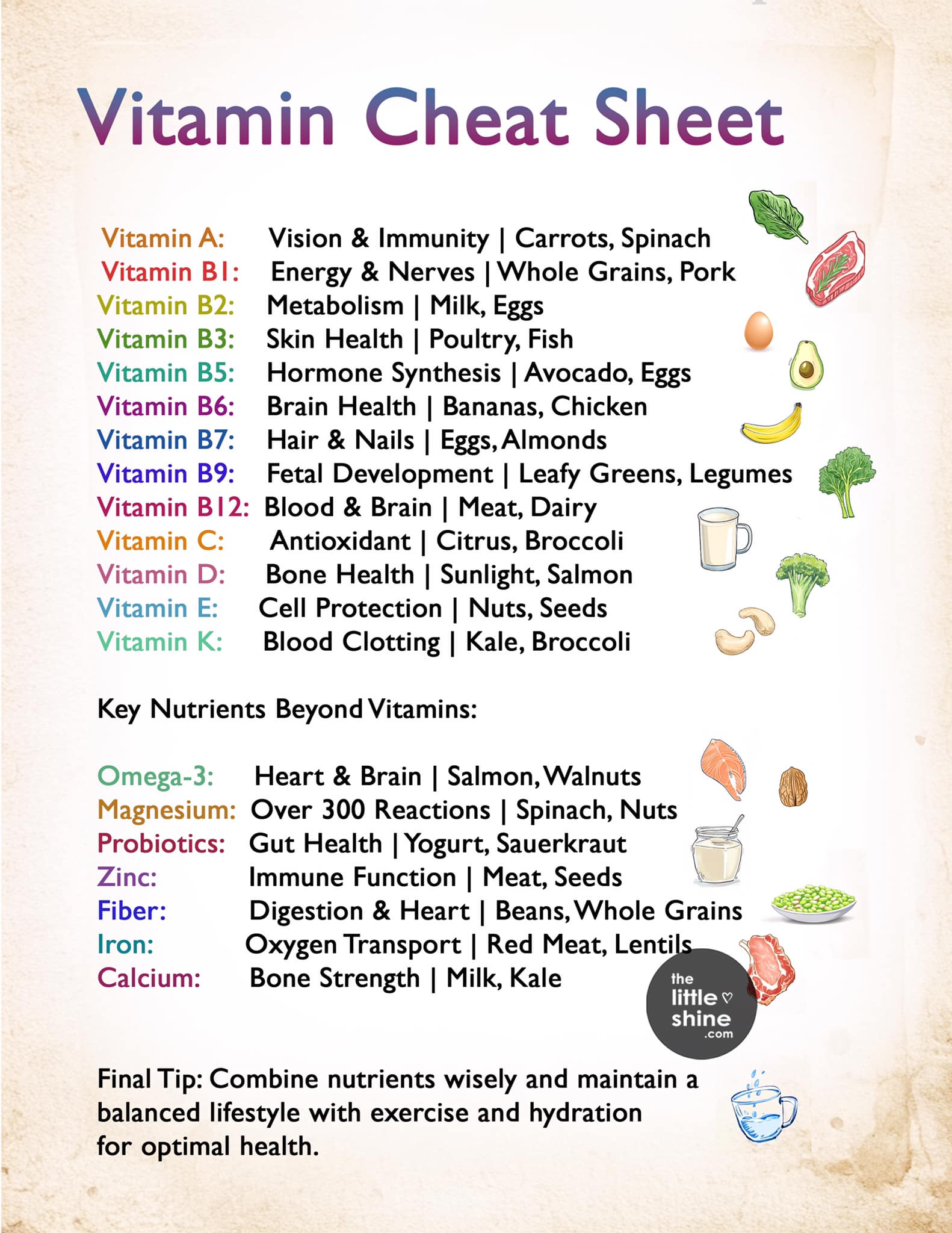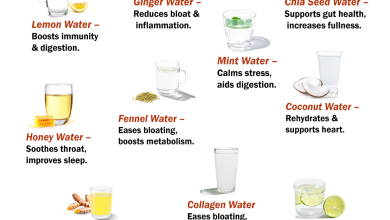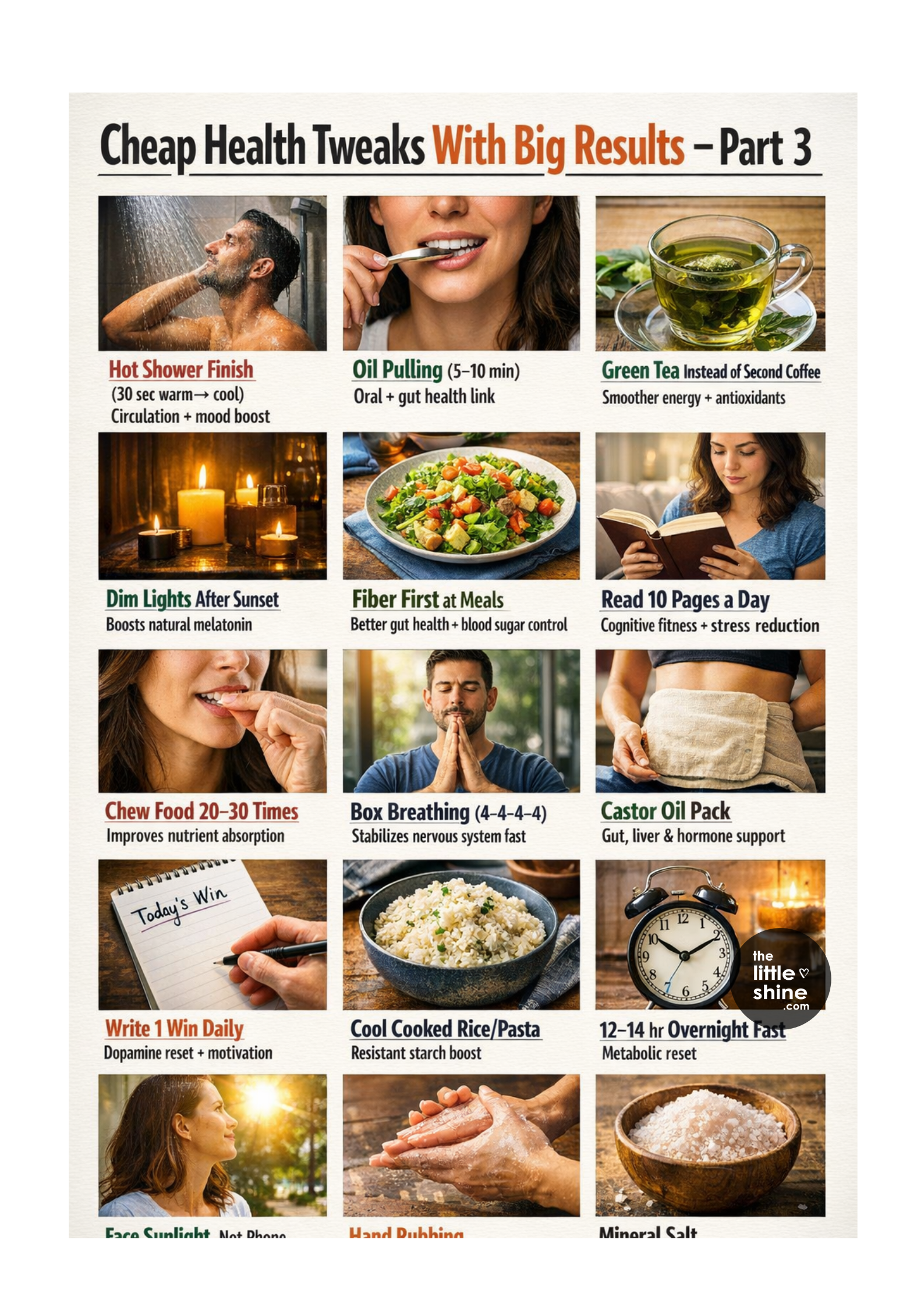Vitamin Cheat Sheet
Vitamins are very essential for our body and for our health. They help fight infection by boosting bodily immunity, promote wound healing, increase bone strength, regulate our hormones and the list of benefits goes on!

Most often we hear of a few common vitamins like vitamin A, vitamin B, vitamin C, vitamin D and vitamin E. But did you know that there are actually 12 vitamins (as vitamin B is further divided into parts) which are all essential to health?
Let’s talk about vitamins today! We will discuss the types of vitamins, what we use it for, what are the good sources to obtain them and how much is the required daily dosage of each we need.
Vitamin Cheat Sheet
Vitamin A (Retinol)
This vitamin is important for healthy skin, vision, bones, teeth and for the purpose of reproduction. It can be got from liver, eggs, fish, milk, carrots, sweet potato, spinach, pumpkin etc. The daily dosage of vitamin A should be about 600 micrograms.
Vitamin B1 (Thiamin)
Vitamin B1 supports skin, hair, nail health and helps balance blood sugar. It can be got from pork, soy, tomato, spinach, watermelon etc. The daily dosage of vitamin B1 should be about 1.4 milligrams.
Vitamin B2 (Riboflavin)
This vitamin helps convert food into energy and supports healthy skin, hair, blood and brain. It can be obtained from consuming dairy, meat, green, enriched wheat, oysters, leafy veggies etc. The daily dosage of vitamin B2 should be about 1.6 milligrams.
Vitamin B3 (Niacin)
This vitamin helps convert food into energy and is essential for healthy nervous system. By consuming beef, chicken, shrimp, peanuts, tomato, spinach, avocado etc., you can intake this vitamin. The daily dosage of vitamin B3 should be about 18 milligrams.
Vitamin B6 (Pyridoxine)
Vitamin B6 helps make red blood cells and improves sleep, appetite and mood. The intake of chicken, tofu, banana, watermelon, fish, legumes etc., can give you sufficient amounts of vitamin B6. The daily dosage of vitamin B6 should be about 2 milligrams.
Vitamin B7 (Biotin)
Vitamin B7 helps convert food into energy and breaks down glucose. You can consume whole grains, eggs, almonds, soybeans, fish etc., for the intake of this vitamin. The daily dosage of vitamin B7 should between 30 to 100 micrograms (mcg) for adults.
Vitamin B9 (Folic Acid)
Vitamin B9 is vital for new cell creation and DNA synthesis. It can be intaken by consuming legumes, spinach, leafy greens, chickpeas, tomato, asparagus etc. The daily dosage of vitamin B9 should be about 400 micrograms (mcg).
Vitamin B12 (Cobalomin)
Vitamin B12 can break down fatty acids and amino acids. It can also help make red blood cells in the body. By consuming dairy, beef, pork, poultry, fish, eggs etc., you can consume vitamin B12. The daily dosage of vitamin B12 should be about 6 micrograms.
Vitamin C (Ascorbic Acid)
Vitamin C acts as an antioxidant and can also help make new cells in the body. It also helps improve the immune system. You can intake it by consuming fruits and fruit juices, pepper, broccoli, tomato, spinach etc. The daily dosage of vitamin C should be about 75 milligrams.
Vitamin D (Calciferol)
Vitamin D strengthens and helps form bones and teeth via calcium and phosphorous. It can be got from egg yolks, fatty fish, liver etc. It can also be obtained from direct exposure to sunlight. The daily dosage of vitamin D should be about 5 micrograms.
Vitamin E (Tocopherol)
This vitamin acts an antioxidant and also helps stabilize cell membranes. It can be got by consuming nuts, avocados, tofu, whole grains, seeds etc. The daily dosage of vitamin E should be about 10 milligrams.
Vitamin K (Phytonadione)
This vitamin is essential for blood clotting and helping to regulate blood calcium. You can get this vitamin from consuming broccoli, Brussels sprouts, liver, leafy greens etc. The daily dosage of vitamin K should be about 80 micrograms.
More on Minerals here –

